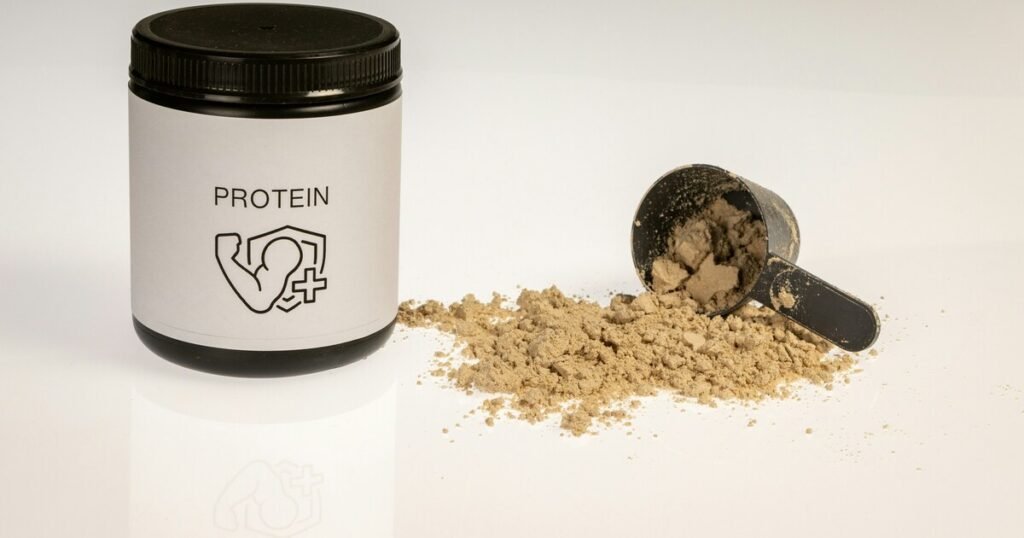We independently test and review fitness products using a research-based approach. If you buy through our links, we may earn a small commission at no extra cost to you. Read our Disclosure
Joint pain can be a real downer, throwing a wrench into your everyday activities and making even small movements a challenge. Whether it’s stiffness in the morning or those pesky aches after a workout, joint discomfort is something most of us want to avoid. Luckily, there’s a world of supplements that might just help ease that pain and get you back to feeling your best.
Imagine tackling your daily routine without that nagging reminder of joint woes. From soothing inflammation to supporting cartilage health, there are nutrients known for their potential to relieve joint pain. But where do you start when there are so many options out there?
This guide breaks down the top 10 supplements you can consider integrating into your repertoire. Each one is chosen for its unique benefits and potential to help you move with greater ease. Whether you’re a seasoned athlete or simply looking for ways to support your joint health, this list aims to provide valuable insight. Let’s dive into the powerhouse supplements that could offer a smoother, more pain-free life.
1. Glucosamine and Chondroitin
Glucosamine and chondroitin are often referred to as the dynamic duo for joint health. They are structural components found naturally in cartilage, the rubbery tissue that cushions your joints.
- Glucosamine: This compound is thought to help increase the cartilage’s water content, aiding in its resilience and shock-absorbing capabilities. By supporting healthy cartilage, glucosamine can play a part in easing pain and potentially slowing joint degradation.
- Chondroitin: Chondroitin complements glucosamine by potentially inhibiting enzymes that break down cartilage. It may also encourage the production of new cartilage, making it a key player in joint repair and maintenance.
Many individuals find that this combination helps improve joint mobility and reduces pain over time.
2. Turmeric and Curcumin
Turmeric, often hailed as a miracle spice, is prized for its active ingredient, curcumin, which has gained significant attention for its potential to ease joint pain.
Curcumin is known for its robust anti-inflammatory properties, which can be particularly beneficial for reducing joint inflammation and pain. By suppressing the molecules involved in inflammation, turmeric can help lessen the swelling and discomfort that often accompany joint disorders. Aside from reducing inflammation, turmeric has antioxidant properties that help fight off free radicals that can damage joint tissues.
Note: Curcumin in food alone might not provide a sufficient therapeutic amount, so concentrated supplements or extracts are often recommended.
3. Omega-3 Fatty Acids (Fish Oil)
Omega-3 fatty acids are more than just heart heroes; they’re also champions of joint health. These essential fats, found in abundance in fish oil rich (rich in EPA and DHA), play a crucial role in maintaining joint flexibility and comfort. Omega-3s are renowned for their ability to reduce the production of certain inflammatory chemicals in the body. Regular consumption can help the body produce anti-inflammatory molecules, offering a soothing effect on painful joints, and may help reduce stiffness and swelling. They may also possess properties that support the maintenance and repair of joint cartilage.
4. Methylsulfonylmethane (MSM)
Methylsulfonylmethane, commonly known as MSM, is a naturally occurring sulfur compound found in plants, animals, and humans, and it’s believed to offer several benefits for joint health.
MSM is celebrated for its anti-inflammatory and antioxidant properties, which can help reduce the swelling and discomfort often associated with joint pain. By curbing inflammation, MSM can aid in improving joint flexibility and function. Additionally, MSM supports the maintenance of cartilage, helping to protect the joints from the impact of physical movement and potentially slowing the degeneration process.
5. Undenatured Type II Collagen (UC-II)
Collagen is the most abundant protein in the body and is critical for the structure of skin, bones, and cartilage. Specifically, Type II Collagen is the main structural component of joint cartilage.
Undenatured (or native) Type II Collagen works differently than standard hydrolyzed collagen. Instead of providing building blocks, UC-II is thought to work via an immune mechanism, helping the body recognize its own cartilage as “safe” and reducing the autoimmune response that often drives inflammation and breakdown in joints. It’s an effective option for long-term cartilage support.
6. Vitamin D
Vitamin D is often celebrated for its role in bone health, but it also plays a vital part in managing joint pain. This sunshine vitamin is crucial for maintaining adequate levels of calcium and phosphorus, key minerals that support bone strength and joint function.
A deficiency in vitamin D can lead to decreased bone density, which can exacerbate joint discomfort. By the same token, vitamin D also has a role in modulating the immune response, which can help reduce inflammation and potentially prevent further joint damage. Ensuring sufficient levels of this vitamin is essential for overall musculoskeletal health.
7. Boswellia Serrata
Also known as Indian frankincense, Boswellia is an herbal extract renowned for its ability to combat inflammation.
The active component in Boswellia is boswellic acid, which studies suggest may block the activity of 5-LOX, an enzyme that causes inflammation in the body. This targeted action can offer comfort to sore joints, making it a powerful and long-trusted natural anti-inflammatory agent.
8. Ginger Root Extract
Like its spicy counterpart turmeric, ginger is a potent natural anti-inflammatory that has been used in traditional medicine for centuries.
Ginger contains bioactive compounds, such as gingerols and shogaols, which help suppress the production of pro-inflammatory molecules in the body. For individuals dealing with chronic joint pain, supplementing with ginger can offer a natural, well-tolerated means of reducing overall systemic inflammation and improving joint comfort.
9. Hyaluronic Acid (HA)
Hyaluronic Acid is a clear, gooey substance that is naturally produced by your body. High concentrations of HA are found in the connective tissues and, crucially, in the synovial fluid that surrounds your joints.
HA’s primary function in the joint is to act as a lubricant and a shock absorber. While it is often used in injections (viscosupplementation) to treat arthritis, oral supplements are also available and are aimed at improving the fluid quality within the joint capsule, which can lead to better mobility and reduced friction-related pain.
10. S-adenosylmethionine (SAM-e)
SAM-e is a compound that occurs naturally in the body and is involved in numerous biological reactions. As a supplement, it has been studied for its potential effects on both mood and joint health.
SAM-e plays a role in the formation of important joint components like cartilage. Studies suggest it may help stimulate the growth of cartilage tissue and exhibit anti-inflammatory and pain-relieving effects comparable to some over-the-counter NSAIDs, but often with fewer side effects. This makes it an intriguing, comprehensive option for joint pain management.
Exploring the Potential of MSM for Joint Pain Relief
Methylsulfonylmethane, commonly known as MSM, is gaining traction as a potential ally in the battle against joint pain. This naturally occurring sulfur compound is found in plants, animals, and humans, and it’s believed to offer several benefits for joint health.
MSM is celebrated for its anti-inflammatory properties, which can help reduce the swelling and discomfort often associated with joint pain. By curbing inflammation, MSM can aid in improving joint flexibility and function, making day-to-day activities less painful.
Apart from reducing inflammation, MSM supports the maintenance of cartilage, the smooth tissue that cushions joints. This helps in protecting the joints from the impact of physical movement, potentially slowing the degeneration process.
MSM is also thought to have a role in reducing oxidative stress, further protecting joint tissue from damage. Available in supplements, it’s relatively easy to add MSM to your joint health routine.
Before incorporating MSM, it’s wise to have a conversation with your healthcare provider, particularly because dosage and individual responses can vary. With its potential benefits, MSM might be a valuable part of your strategy to manage joint pain and enhance overall mobility.
Conclusion
Navigating the complexities of joint pain can often feel challenging. However, exploring the vast world of supplements offers a proactive approach to managing this discomfort. From the powerful anti-inflammatory effects of turmeric and omega-3 fatty acids to the cartilage-supporting properties of glucosamine and chondroitin, these supplements provide a variety of avenues for potential relief.
Ultimately, the right combination of supplements can empower individuals to lead more active and comfortable lives, even in the face of persistent joint issues.
That said, while supplements can offer significant support, they should ideally be part of a holistic joint health plan. Regular exercise, a balanced diet, and consulting healthcare professionals ensure that the approach remains comprehensive and safe.
As always, it is crucial to discuss with a healthcare provider before starting any new supplement regimen. This ensures that they fit your specific health needs and work harmoniously with any other treatments you may be using.



